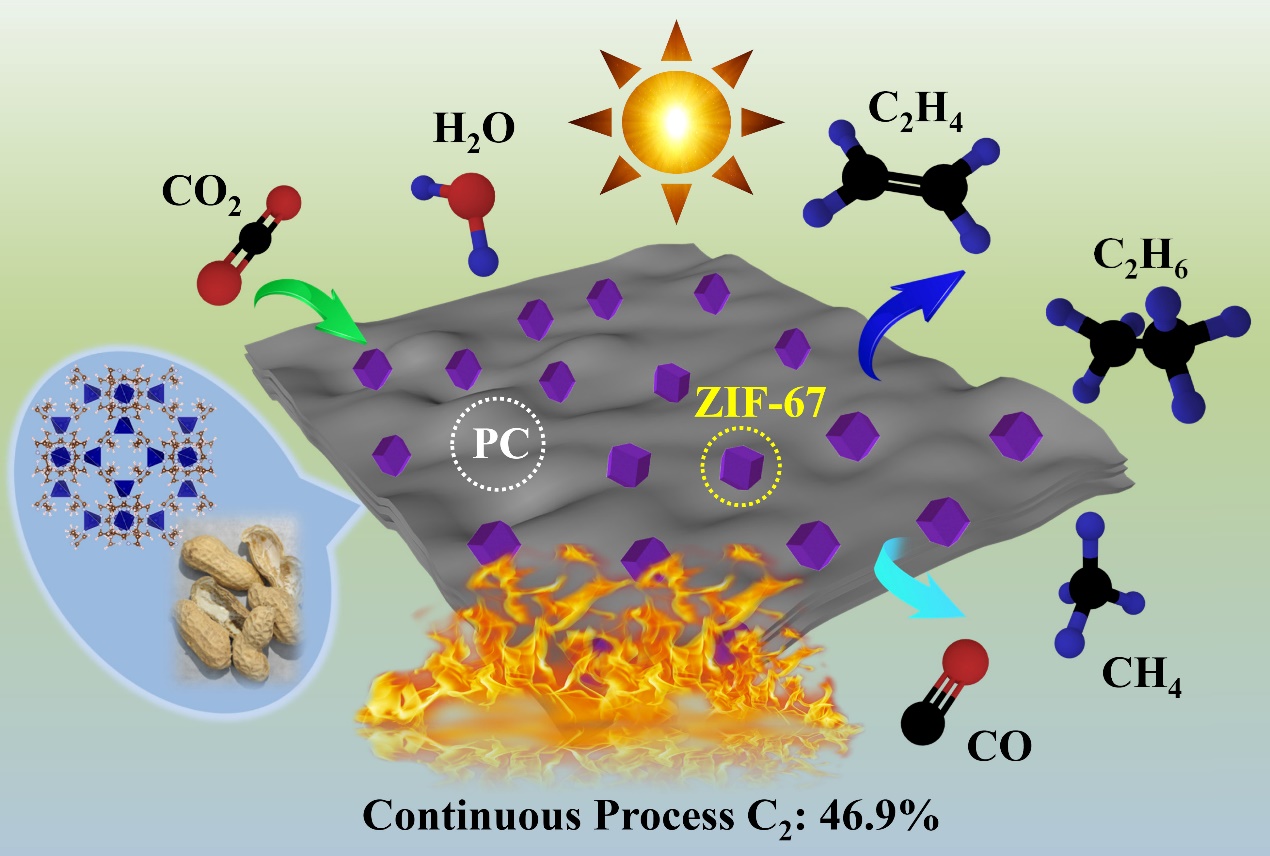Amid the global push for carbon neutrality, converting CO2 into valuable fuels and chemicals is crucial. However, traditional methods like thermal, photo, and electrocatalysis face limitations in efficiency, energy use, and cost. Using water as a proton source is a more sustainable alternative to hydrogen, but achieving efficient CO₂-to-C₂ conversion, especially in a continuous-flow process, remains a significant challenge due to the high demands on catalyst performance.
In a study published in Chinese Chemical Letters, the research group led by Prof. LU Canzhong from Fujian Institute of Research on the Structure of Matter of the Chinese Academy of Sciences, proposes an innovative solution, developed a ZIF-67/biochar composite that converts CO2into valuable C2 products using water, achieving 55.96% selectivity under mild conditions.
The researchers developed a ZIF-67/peanut shell biochar (ZIF-67/PC) composite via a facile room-temperature method. Material characterization revealed that ZIF-67 crystals, with a well-defined dodecahedral morphology of 50-100 nm, were uniformly anchored on the biochar surface.
Advanced spectroscopic and analytical techniques were employed to evaluate its properties. ESR and Raman spectroscopy identified an increased defect density, which, as CO₂-TPD measurements confirmed, resulted in a significantly enhanced CO₂ adsorption capacity of 0.997 mmol/g. The composite's optoelectronic properties were thoroughly investigated. UV-Vis DRS confirmed strong visible-light absorption, while a suite of photoelectrochemical tests—including photocurrent response, photoluminescence (PL), and electrochemical impedance spectroscopy (EIS)—collectively demonstrated the material's exceptional efficiency in generating and separating photogenerated charge carriers.
This superior structure directly translated to high catalytic performance. In a continuous-flow reactor under thermo-photocatalytic conditions (350 °C, 0.2 MPa), the ZIF-67/PC composite achieved a C₂ product selectivity of 55.96% using only H₂O as the proton source. In-situ DRIFTS and ATR-SEIRAS studies provided mechanistic insight, showing that light illumination promotes key intermediate formation for C-C coupling and enhances H₂O activation, thereby facilitating the efficient conversion of CO₂.
This study constructed a ZIF-67/biochar composite material and achieved thermo-photocatalytic conversion of CO2 to C2 products using H2O as a proton source in a continuous-flow reactor, demonstrating good catalytic performance and industrial application potential.

Schematic of the hierarchical porous composite material ZIF-67/PC derived from peanut shell for thermo-photocatalytic CO2 conversion with H2O in a continuous process.(Image by Prof. Lu’s Group)
Contact:
Prof. LU Canzhong
Fujian Institute of Research on the Structure of Matter
Chinese Academy of Sciences
Email: czlu@fjirsm.ac.cn